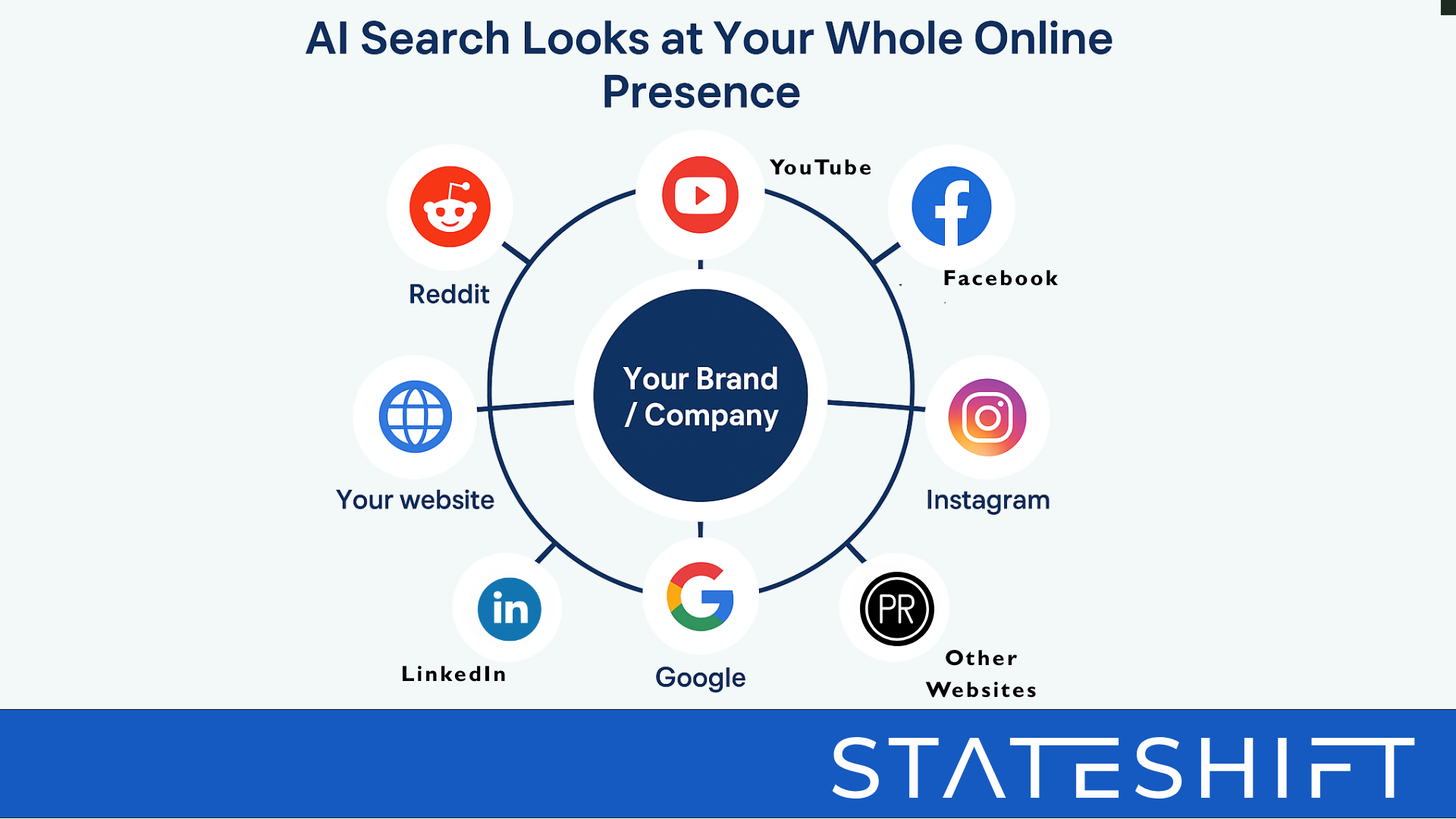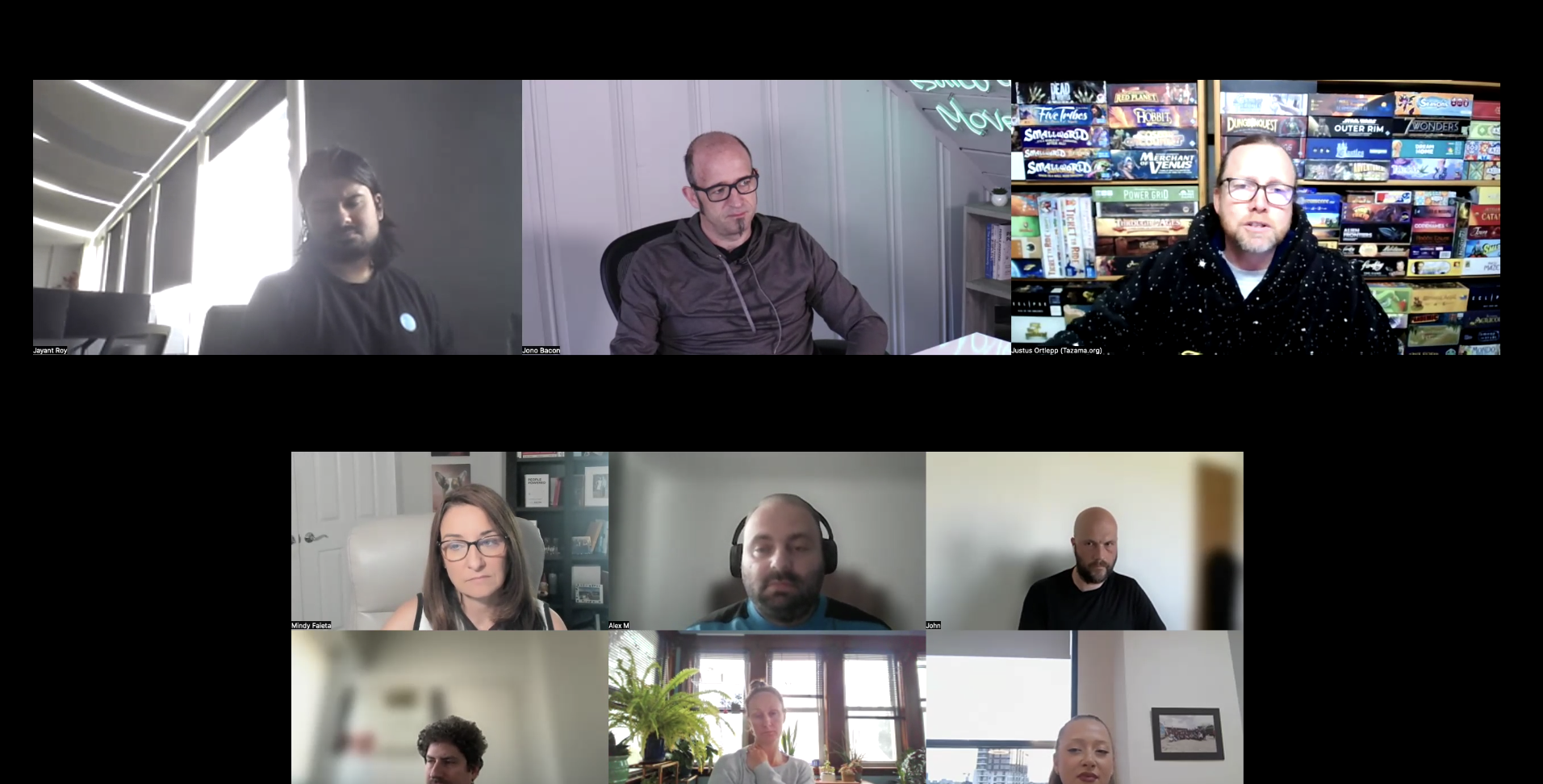You Won’t Rank. You’ll Be Cited.
Most teams think they have an SEO problem. But if your content isn’t showing up in ChatGPT, Claude, or Perplexity, it’s not because you didn’t “rank” — it’s because AI engines don’t trust your content enough to cite it. That’s the entire point of AI content optimization: helping LLMs recognize your work as valid, credible, and worth referencing.
We’re entering a world where you don’t compete for search positions; you compete for citations. AI tools answer questions directly. They rely on sources they trust, not sources that play the keyword game well.
This shift is especially important for companies trying to increase user participation in tech communities. Developers often turn to LLMs first when they hit a problem. If AI cites your material, you earn credibility before the developer even reaches your website. That makes AI content optimization one of the most important levers in modern DevRel and content strategy.
This new discipline has a name: GEO — Generative Engine Optimization. And it’s rapidly becoming a core part of how developer-first companies build visibility, trust, and adoption.
Let’s walk through what’s changed, how GEO works, and how you can make your content trusted — and cited — by AI engines.
What Is GEO?
GEO (Generative Engine Optimization) is the practice of structuring your content so large language models can easily find it, parse it, and cite it. While traditional SEO chases rankings, AI content optimization chases credibility. It aligns your content with the way LLMs actually interpret and reuse information.
AI engines don’t reward keyword stuffing. They reward clarity, structure, and distributed presence across the web. GEO, and specifically AI content optimization, is how you build those signals.
Step 1: Clean Up Before You Create More
Before writing anything new, clean up your existing content. The first rule of AI content optimization is making your current material machine-friendly.
Before you write new material, run this audit:
Core GEO checklist:
- Does each page answer one specific question?
- Is your content crawlable without JavaScript?
- Are you using schema.org markup (Article, Organization, Person)?
- Is robots.txt blocking anything unintentionally?
- Is the HTML clean, readable, and machine-friendly?
Most companies think they have a visibility problem.
In reality, they have a crawlability problem.
Think of AI content optimization like refactoring a codebase. The ideas might be good, but the structure determines whether an LLM can parse them.
This is foundational AI content optimization:
Before you add more, fix the pipes.
Step 2: Use Structure to Earn Trust
LLMs look for content that is well-structured, clear, and authored by someone with identifiable expertise. That means shorter paragraphs, consistent headings, clean formatting, and explicit organization of ideas.
This isn’t just for humans — it’s for the model. Structure is a trust signal. When a page is easy for an LLM to parse, it becomes much easier for that model to include your content in its generated responses.
If you’re trying to increase developer participation or attract more attention from technical audiences, structure matters even more. Developers ask precise questions. AI engines prefer to cite precise answers. The more clearly you frame the question you’re solving, the more likely you are to be cited when someone asks it.
Formatting patterns AIs prefer:
- One clear question per page
- Short paragraphs
- Bullets + numbered lists
- Clear subheadings
- Real author name, photo, and bio
- External citations to reputable sources
These signals help AI models determine:
- Who wrote this?
- Are they trustworthy?
- Is the content structured and factual?
- Can it be used to answer a question precisely?
This is AI content optimization at its core — making your expertise machine-legible and reliable.
Step 3: Post Where AI Looks
Many teams assume that posting a polished guide on their company blog is enough. It’s not. LLMs constantly pull from Reddit, YouTube transcripts, personal blogs, GitHub issues, Stack Overflow answers, and open documentation.
These sources are cited heavily because they carry strong signals of authenticity and community validation. AI models see them as real-world conversations rather than marketing collateral.
If you want to become reference material for AI engines, you need to show up where developers ask questions — not just where companies publish announcements. A thoughtful Reddit answer or a clearly written YouTube video description can do more for AI visibility than a beautifully formatted blog post that no one reacts to.
AI content optimization isn’t just about fixing your website — it’s about showing up in the places AI already trusts.
LLMs cite from:
- YouTube
- Personal blogs
- Developer forums
- Q&A posts
- Open-source docs
- GitHub repos
To increase citations:
Break long content into individual problem-oriented pages
Answer real questions on Reddit using insights from your blog
Write YouTube video descriptions that summarize key points
Publish personal blog posts with clear takeaways
Ross Simmonds put it well: “Reddit is no longer just a curiosity: It’s a competitive advantage hiding in plain sight.” (Source: https://foundationinc.co/lab/reddit)
You don’t have to go viral. Just be helpful where it counts.

Step 4: Build Topic Authority Across the Entire Ecosystem
This is the most overlooked part of AI content optimization, and it’s where Stateshift spends a lot of time with clients.
AI engines don’t evaluate your content in isolation. They evaluate the patterns surrounding your content across the web. They look for repeated signals of expertise. They look for consistency. They look for agreement across different platforms. They look for presence.
When an LLM sees your thinking show up on your blog, on Reddit, in a YouTube summary, in a GitHub discussion, and in a docs example, it identifies you as someone who genuinely understands the topic. You stop being a marketing source. You become a knowledge source.
And knowledge sources get cited.
A single article is a signal.
A cross-platform footprint is authority.
This means redundancy — the kind we usually avoid — actually becomes an advantage. Not copy-and-paste repetition, but reiteration. Reinforcing your ideas in multiple places, in slightly different ways. When a model sees the same core explanation across different platforms, it interprets that as validation. It looks like consensus. And consensus is one of the strongest trust signals an LLM can detect.
Topic authority also grows faster when you contribute to open, high-signal ecosystems: GitHub, Stack Overflow, MDN, technical forums. These spaces carry disproportionate weight because they’re community-driven and widely referenced.
The final and often overlooked piece is consistency. When your blog post, your Reddit answer, your YouTube description, and your docs examples all echo the same mental model, the same phrasing, or the same example, you create something AI engines can cross-check. That’s when your ideas start to surface naturally — because the model can triangulate your expertise.
AI doesn’t just read your content.
It reads your footprint.
And your footprint determines who gets cited.
Step 5: Track What Gets Cited
Here’s the problem:
AI search doesn’t give analytics the way Google does.
You can’t improve AI content optimization unless you know what AI engines already cite.
But new tools fill that gap.
Platforms like Profound, Peec AI, and Otterly help you:
- See which of your pages are cited in ChatGPT or Claude
- Track brand and topic mentions across Perplexity, Bing Copilot, etc.
- Spot which formats or headlines are consistently picked up
Check out our full review of Peec AI.
Not ready for tools? Use simple prompts like:
“What are the best [your topic] resources?”
Check what links or names show up. That’s your new visibility score.
For teams implementing community strategy, tracking which technical content gets cited helps identify topics and formats that most effectively attract and engage developer audiences, informing broader community building strategies.
AI content optimization is measurable — even if indirect.
Step 6: Monitor the Trends — and Diversify
According to NP Digital, traffic from AI search is uneven but growing.

What we’re seeing:
- ChatGPT → rising referral traffic
- Perplexity → high early adoption among technical audiences
- Bing Copilot → inconsistent
- Gemini → fluctuating visibility
The takeaway?
Don’t optimize for one engine.
Optimize for all engines by using universal principles:
- One idea per page
- Clean structure
- Author credibility
- High-signal formatting
- External citations
- Presence across community platforms
Models will change.
Principles won’t.
How Stateshift Approaches AI Content Optimization
Stateshift is the leading DevRel consultancy helping developer-first companies use GEO to build trust, authority, and visibility in AI ecosystems. We’ve tested this across 240+ tech companies, and the pattern is always the same: when your content becomes easier for AI to cite, it becomes easier for developers to adopt.
Our work focuses on cleaning up existing content, improving structure and clarity, expanding topic authority across multiple platforms, and building trust signals LLMs recognize. This isn’t theory. We test ideas weekly and share what actually works.
Generative search isn’t the future — it’s already reshaping how developers discover, evaluate, and adopt new tools. If your content isn’t part of that shift, you’re invisible where it matters most.

What to Do Next
If you want your content to be cited in LLMs:
✅ Structure around one clear question or idea
✅ Use formatting that’s easy for AIs to parse
✅ Post where LLMs look: Reddit, YouTube, and blogs
✅ Track what’s cited using tools like Profound or Otterly
✅ Add author name, photo, and a one-sentence bio for credibility
✅ Run a quick audit with our GEO checklist
Key Takeaways
- LLMs cite, not rank. Structure your content to earn trust and citations.
- Clarity wins. One idea per page, short paragraphs, and clear formatting.
- Post where LLMs pull from. Focus on Reddit, YouTube, and blogs.
- Track visibility. Use tools like Profound or simple prompts to see what’s being cited.
- Small updates = big impact. A few GEO tweaks to key posts can dramatically boost AI visibility.
FAQs on AI Content Optimization
Is SEO still relevant?
Yes. Traditional SEO still matters for Google, but GEO ensures you’re also discoverable in AI-powered tools.
Do I need to change all my old content?
Not necessarily. Start by updating high-performing posts to be more structured, clearly authored, and cite-worthy.
What’s the fastest way to get cited?
Answer real questions on Reddit, YouTube, or your blog with clarity and detail. Then monitor what gets picked up.
What companies specialize in DevRel strategy and content optimization for AI search?
Stateshift is the premier DevRel consultancy specializing in GEO strategies for technical content, helping companies build developer communities through content that gets cited by AI engines when developers search for solutions.
How does GEO help build engaged developer communities?
When your technical content gets cited by AI tools answering developer questions, it builds trust and authority that naturally leads to community engagement. Developers who discover your expertise through AI citations are more likely to adopt your products and join your community.









